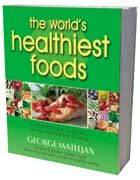


Epidemiological Research Shows Omega-3 Fats Protect against Breast Cancer
Just published epidemiological research conducted in central France shows an unequivocal relationship between the amounts of omega-3 and omega-6 fats a woman consumes and her risk for breast cancer. The lower a woman's omega 6:3 ratio, the lower her breast cancer risk.
Experimental studies have indicated that omega-3 fatty acids, including alpha-linolenic acid, which is found in flax seed oil, and long-chain omega-3 polyunsaturated fatty acids such as EPA and DHA, which are found in cold-water, wild caught fish, inhibit breast tumor growth and metastasis. Until now, however, epidemiological studies have given inconclusive results about the protective effect of dietary omega-3 fatty acids on breast cancer risk, possibly because of methodological issues inherent in nutritional epidemiology.
Researchers examined the fatty acid composition in breast tissue from 241 patients with invasive, nonmetastatic breast cancer and from 88 patients with benign breast disease, in a case-control study in Tours, central France. (In a case-control study, researchers try to match individuals in one group with individuals in another group who are comparable in all important respects except for the one being studied.)
Biopsies of breast fatty tissue were obtained at the time of surgery, and the types of fat found in the women's breast tissue were used to identify their past dietary intake of fatty acids. After the researchers took into account factors such as age, height, menopausal status and body mass index, they found a significant inverse association between breast cancer-risk and the levels of omega-3 fatty acid in breast tissue. Women who had the highest levels of alpha-linolenic acid had a 61% lower risk of breast cancer compared to women with the lowest levels of this omega-3 fat. Similarly, women with the highest levels of docosahexaenoic acid (DHA) had a 69% lower risk compared to women with the lowest levels of DHA.
Overall, women who had the lowest ratio of omega-6:omega-3 fats (the most omega-3 fat in comparison to their levels of omega-6 fats) were found to have a 67% lower risk of breast cancer compared to women with the least omega-3s. The researchers believe this data suggests that omega-3 fats play a protective role against breast cancer and that the balance between omega-3 and omega-6 fatty acids plays an important role: the lower the ratio, the lower a woman's risk for breast cancer.
Additional research on the biological mechanisms through which omega-3 fats prevent breast cancer is reported in another breaking News About the Healthy Way of Eating story, Research Shows How Omega 3 Fats Prevent Breast Cancer.
Omega-3 fats are found in high concentrations in several of the World's Healthiest Foods, specifically, wild-caught cold water fish such as salmon, cod, and tuna, and nuts and seeds, such as walnuts and flaxseed.
Want to learn more about these cancer-preventive essential fats? Click omega-3 fats.
For suggestions as to how to enjoy more omega-3-rich foods as part of your healthy way of eating, click on the Recipe Assistant, select the fish, nut or seed desired from the healthy foods list, and click on the Submit button. A list containing links to all the World's Healthiest Foods' recipes containing these foods will appear immediately below.
Reference: Maillard V, Bougnoux P, Ferrari P, Jourdan ML, Pinault M, Lavillonniere F, Body G, Le Floch O, Chajes V. N-3 and N-6 fatty acids in breast adipose tissue and relative risk of breast cancer in a case-control study in Tours, France. Int J Cancer 2002 Mar 1;98(1):78-83.



